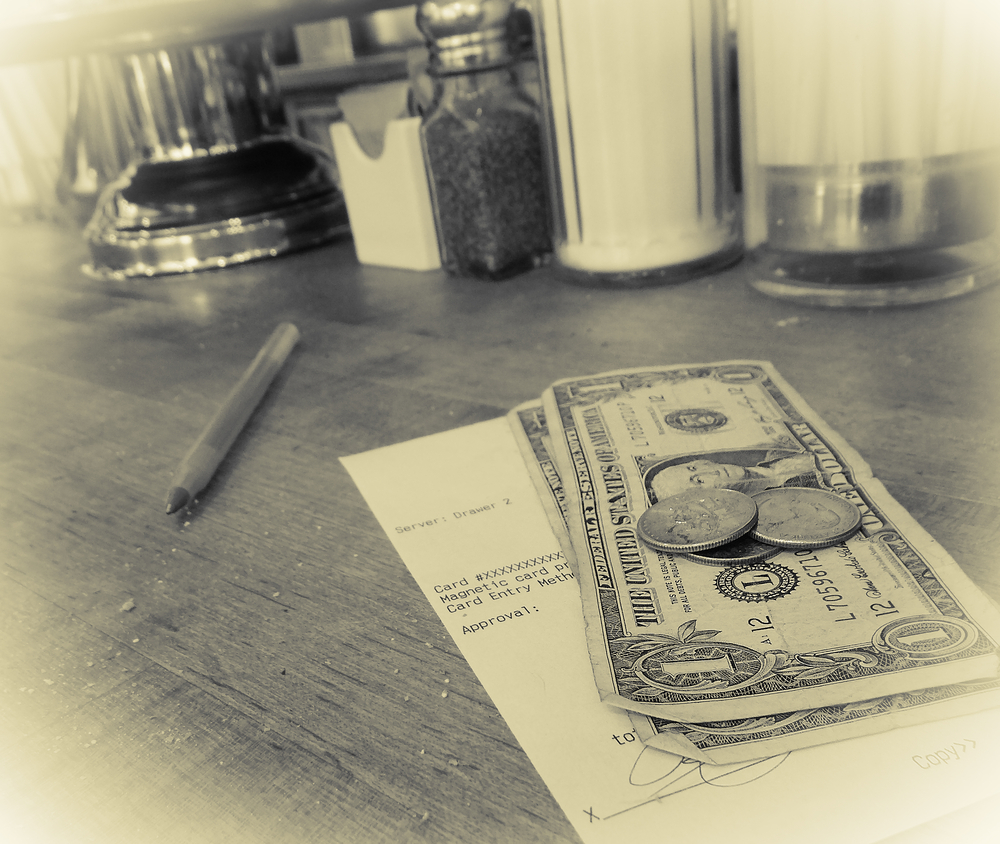
Tipping 20 Percent Is Ridiculous, And If You Want More, Get A Real Job
And, even though food service workers don't love to talk about it because it doesn't look good for their victim complex, they make pretty good money.
By Anonymous
I recently read an article on this very web site that was being shared by almost all of my Facebook friends that work in the food service industry, called 16 New Rules For Tipping In Restaurants. Even though I knew it would just upset me, and I didn’t want to get sucked into a dozens-long comment argument where nothing actually gets learned, I clicked and read it. With every point, I could feel my blood boiling, as this person put into condescending words all of the incredibly entitled attitudes I already knew existed amongst servers. The cheers of “You go, girl!” in the comments were confirmation that these are the ideas we are actually expressing now, shaming people who don’t leave a consistent 20 percent as heartless assholes. I know that I’m one of them and you know what? I don’t really care anymore.
Before you tell me that I don’t know what I’m talking about, I was a waiter before, for three years, and not even that long ago. I earned 2.75 an hour and lived on the kindness of my tips. I expected a tip, unless there was something really wrong with service, and I hated when I got stiffed as much as anyone. I’ve even followed someone outside before when, after a multiple-hour, 200-dollar meal, they left me 37 cents. I know what it feels like. But even when I was working — and, again, it wasn’t that long ago — 20 percent was considered an exceptional, rare tip. It was not just the standard that we leave to any old schlub who does an okay job. Twenty percent was a goal, and one that not all of us were going to get that week, even that month. I expected somewhere between 10 and 15 percent for normal service, maybe even a little less if I was hungover on a brunch shift and didn’t really take care of my tables.
But the point of the job, no matter how much we’ve forgotten about this, is to provide exceptional service. The tip is essentially a grade, telling you how well you’ve done. And 20 percent is an extreme portion of the overall cost of the meal, and tipping over that as the last way to say “this service was very, very good” is absurd. Where do we go from here? Tipping 50 percent? Tipping the whole price of the check? Tipping 150 percent when the waitress was very attentive? You can argue that it’s unfair for the laws to put the responsibility of paying the server mostly on the customer, and I would mostly agree with that, but there are a lot of problems to deal with in that arena. Most food service workers don’t have health insurance, either, but we’re not asking customers to provide them with a plan with a good deductible. These are problems to take up with your bosses, and our lawmakers, not to constantly shove off onto customers until they are left paying another person’s salary entirely each time they eat out. 10-15 percent reflects what a tip is supposed to be, a little something extra for doing a good job.
And, even though food service workers don’t love to talk about it because it doesn’t look good for their victim complex, they make pretty good money. At the restaurant where I worked (a semi-nice national chain, you’ve probably heard of it), most of the waiters and all of the bartenders cleared a good amount of money every night. They had money for rent, bills, new things, and often even classes at the local college. Often, the problem was that, at the end of their shift, they would go out to an after-hours bar and spend most of the cash they earned buying each other shots before it ever actually saw a bank account. (Of course, the casual alcoholism rampant in the industry is another issue to be addressed at another time.) The point is that, compared to a lot of other jobs that an 18-year-old can work just out of high school, it’s pretty good. They are not martyrs.
I understand the frustrations that come with food service. People are often disrespectful, and the hours are long, and you’re on your feet, and you work doubles without being able to stop for lunch. I’ve done it, and I know that it’s not the greatest job in the world. But it is also a job you chose. And sometimes people are stuck in it, but a lot of times people choose to stay in it way longer than they should because the money is relatively good, and very fast. It’s tempting to be able to leave at the end of the night with a handful of cash, and not be putting away for the future. I left, even though the money was worse at first, because I wanted to finally finish my degree and get a job in my field. And you know what? Even as a skilled technician, I’m not making that much more than I did as a waiter. I will have to put in about five years of work here before I’m making significantly more, and it’s not immediately gratifying. But I also don’t depend on the kindness of strangers for my money, and I don’t have to pressure them into giving me ever-more money for doing the same job, and often not very well. I’ve made a real future for myself that depends on my own hard work, and so can you. ![]()











